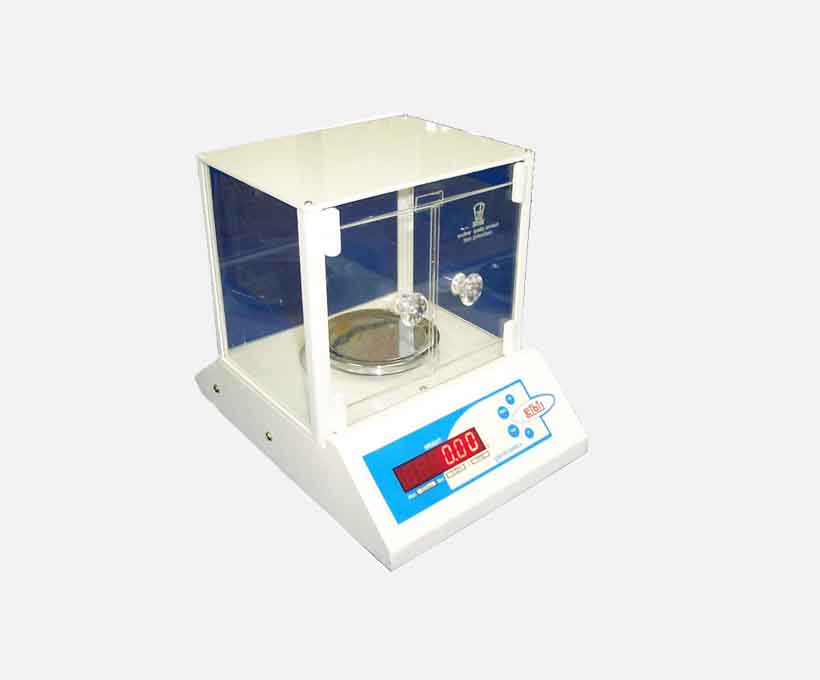
micro weighing balance
DHAB – Micro Weighing Balance
Description
Discover precision like never before with our Micro Weighing Balance. Designed to handle the most delicate and minute measurements, this scale is a testament to accuracy and finesse.
Whether you’re in a laboratory setting, a jeweler’s workshop, or any other field where precision matters, our Micro Weighing Scale is your trusted companion. Its exceptional sensitivity and high-resolution capabilities allow you to weigh even the tiniest of samples with utmost accuracy.
Features of Micro Weighing Balance
Micro weighing balances are specialized instruments designed to provide extremely precise measurements of small masses. The features of micro weighing balances can vary between models and manufacturers, but here are some common features associated with these instruments:
- High Sensitivity:
- Microbalances are characterized by their high sensitivity and ability to measure very small masses, often in the sub-milligram or microgram range.
- High Resolution:
- These balances offer high resolution, allowing users to obtain precise measurements even for very small increments.
- Electromagnetic Force Compensation:
- Many microbalances use electromagnetic force compensation technology to counteract the gravitational force on the sample, resulting in more accurate measurements.
- Draft Shield:
- Microbalances typically have a draft shield to protect the sample from air currents and environmental factors that could affect the accuracy of the measurement.
- Anti-static Features:
- To prevent static interference, microbalances may include anti-static features or ionizers to neutralize static charges that could impact the weighing process.
- Built-in Calibration:
- Microbalances often have built-in calibration features to ensure accurate measurements. Some models may come with internal calibration weights for convenient and regular calibration.
- Taring Function:
- Like other precision balances, microbalances have a taring function that allows users to subtract the weight of containers or additional materials, focusing on the net weight of the sample.
- Data Connectivity:
- Advanced micro balances may offer data connectivity options such as USB or RS-232 interfaces, enabling users to transfer measurement data to external devices or computer systems.
- Touchscreen or Digital Display:
- Microbalances typically feature digital displays, which may include touchscreen interfaces for user-friendly operation and easy reading of measurements.
- Multiple Weighing Modes:
- Microbalances often support various weighing modes, such as grams, milligrams, micrograms, carats, and more, providing flexibility for different applications.
- Real-time Data Monitoring:
- Some micro balances offer real-time data monitoring, allowing users to track measurements as they are being taken, facilitating dynamic experiments and processes.
- Stability Indicators:
- Microbalances may include stability indicators to inform users when the balance has stabilized and is ready for a measurement.
- Environmental Sensors:
- Some models are equipped with environmental sensors to monitor and compensate for changes in temperature, humidity, and air pressure that could affect the weighing process.
- Weighing Pans and Accessories:
- Microbalances may come with various weighing pans and accessories to accommodate different types and sizes of samples.
- User Profiles and Access Control:
- For shared laboratory environments, micro balances may support user profiles and access control features to ensure that only authorized individuals can use or modify certain settings.
Optional
- RS232 Port, GSM cutter
Applications
Micro weighing balances, also known as microbalances or micro scales, are highly sensitive instruments designed for measuring very small masses with extreme precision. Here are some common applications of micro weighing balances:
- Laboratory Research:
- Microbalances are widely used in scientific laboratories for tasks such as chemical analysis, sample preparation, and research experiments where minute quantities of substances need to be measured.
- Pharmaceutical Research and Development:
- In the pharmaceutical industry, micro weighing balances are employed for measuring precise quantities of active pharmaceutical ingredients (APIs), excipients, and other substances during the formulation and development of pharmaceutical products.
- Material Science:
- Researchers in material science use micro weighing balances to measure small amounts of materials for experiments, especially when working with expensive or limited-quantity substances.
- Biotechnology and Life Sciences:
- Microbalances are essential in biotechnology and life sciences for tasks like measuring DNA samples, proteins, and other biological substances with high accuracy.
- Quality Control in Manufacturing:
- Industries producing small electronic components, sensors, or other precision items utilize micro weighing balances for quality control purposes to ensure that products meet specific weight standards.
- Chemical Analysis and Formulation:
- Microbalances are crucial in chemical laboratories for precise formulation of solutions and mixtures, as well as for quantitative analysis of chemical compounds.
- Environmental Analysis:
- Environmental scientists may use micro weighing balances for analyzing air and water samples, especially when dealing with trace amounts of pollutants or contaminants.
- Jewelry and Gemology:
- Microbalances are employed in the jewelry and gemology industry for accurately measuring the weight of gemstones and precious metals.
- Food Industry Quality Control:
- In the food industry, micro weighing balances are used for quality control purposes, ensuring accurate measurement of ingredients in recipes and adherence to strict production standards.
- Calibration Standards:
- Microbalances are often used to calibrate other weighing instruments, ensuring the accuracy and reliability of various scales and balances used in laboratories and industries.
- Forensic Analysis:
- Forensic laboratories use micro weighing balances to measure small quantities of substances, such as forensic samples or controlled substances, with high precision.
- Academic and Educational Purposes:
- Micro weighing balances are used in educational institutions to teach students about precision measurement techniques and the importance of accurate measurements in scientific research.
Specifications
| MAKE | CIBI |
| Model | DHAB |
| Weighing Capacity | 600 x 0.01g |
| Repeatability | ±0.01g |
| Linearity | ±0.01g |
| Display Digit | LED |
| Power Source | 230V |
| Power Consumption | 6W |
| Platter Size(mm) | Ø110 |


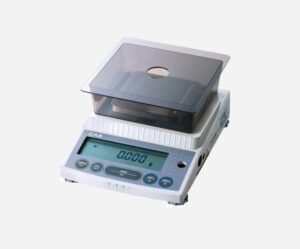
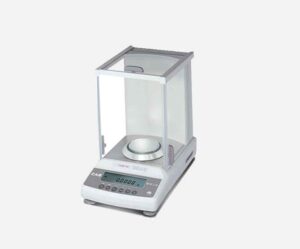
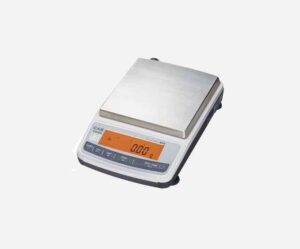
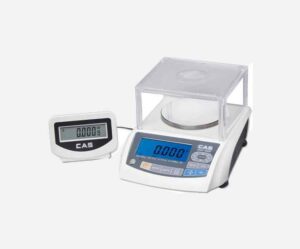
somnath –
GOOD VALUE FOR MONEY